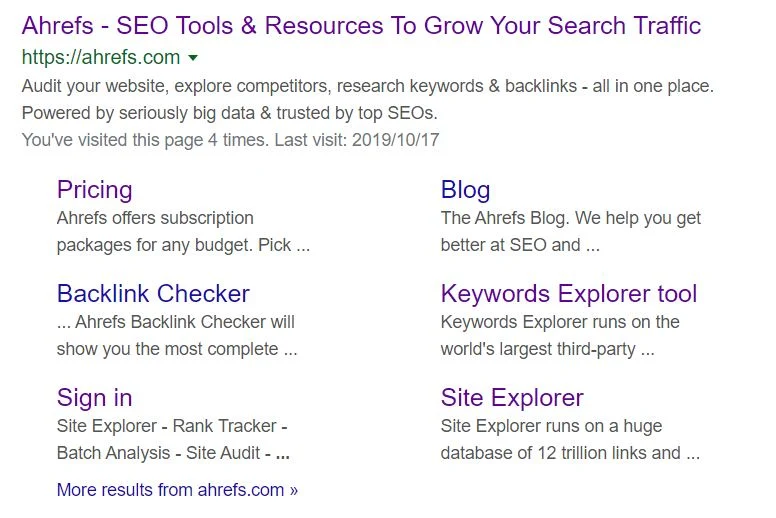Search engine optimization is an ongoing process. When you think you have done your best to help your website rank better, another website might outdo your efforts. Therefore, staying up to date with the relevant SEO tactics is essential. On-page SEO is all about perfecting the code and the content of each page on your website.
On-page optimization is about all those parameters that you have complete control over. Therefore, if you use the right tactics, it is easy to get this working.
1. Do not underestimate the power of meta-descriptions
The right content in your meta description improves the chances of getting the user to click your link. Be careful about the number of characters you use. Make sure that a call-to-action is embedded. If applicable, include specific details or specifications to make the user understand it is a relevant link. Keep the whole content unique and in line with the tone of your website.Meta Description Examples from Top SEO Guru's
1. Neil Patel Meta
 |
| Neil Patel Meta Description |
2. Moz
 |
| Moz Meta Description |
3. Yoast SEO
 |
| Yoast SEO Meta Description |
4. ahrefs
 |
| ahrefs Meta Description |
5.Backlinko
 |
| Backlinko Meta Description |
2. Loading times matter more than you can imagine
Even the most attractive websites with the best quality content might not earn the predicted amount of traffic if they take a long time to load. Think of the varied internet connectivity speeds that people might encounter. No one likes to wait forever for a page to load. Keep this in mind when you choose the type of media and graphics that go on each page. The size of the image or other media files also plays a role in this. Keep a tab on the length of the HTML code as well.3. URL optimization
Visitors often want to see pages with short URLs which appear more meaningful. This also makes the URL easier to copy and share. Make sure that you use the relevant keyword in this URL.How to optimize URLs?
- Do Use URLs Must be 100% Readable
- Do Include the Exact Target Keyword
- Do fix 301 Redirect Broken URLs
- Do Upload a Favicon
- Do Use Canonical URLs
- Do Add Mobile URLs to a Sitemap
- Do Use Block Bad URLs with Robots.txt
- Do Use Top Content in Top Folders
- Don't Change the URL if It’s Established
- Don't Use Misleading URLs
- Don't Use Hyphens or underscores
- Don't Use Capital Letters
- Don't Accept Auto-populated URLs
- Don't Use Stop Words [ include: the, a, an, it,]
- Don't Use Query Strings
4. The title says it all
In fact, this is the very first detail that you should be working on. The page title should draw the attention of the audience. People can easily find the information they need on the Internet. Often, there are thousands of similar blog posts and content. If people should notice your website or post, then it should have a catchy title. This should give a gist of what to expect on the page without giving away too many details.5. The density of the keywords
Avoid keyword stuffing at all costs. Use the right keyword density to improve your website ranking. It is difficult to find specific figures discussing the best-suited keyword density. The key is to use keywords naturally. If they sound natural and do not look like they are simply added to draw traffic, then Google will notice the website.Free Keyword Research Tools
- Do Use Google Trends
- Do Use Keyword Shitter
- Do Use AdWord & SEO Keyword Permutation Generator
- Do Use Answer the Public
- Do Use Google Correlate
- Do Use Keywords Everywhere
- Do Use Wordtracker Scout
- Do Use Google Search Console
- Do Use Soovle
- Do Use Ubersuggest
- Do Use IMforSMB Bulk Keyword Generator


Social Plugin